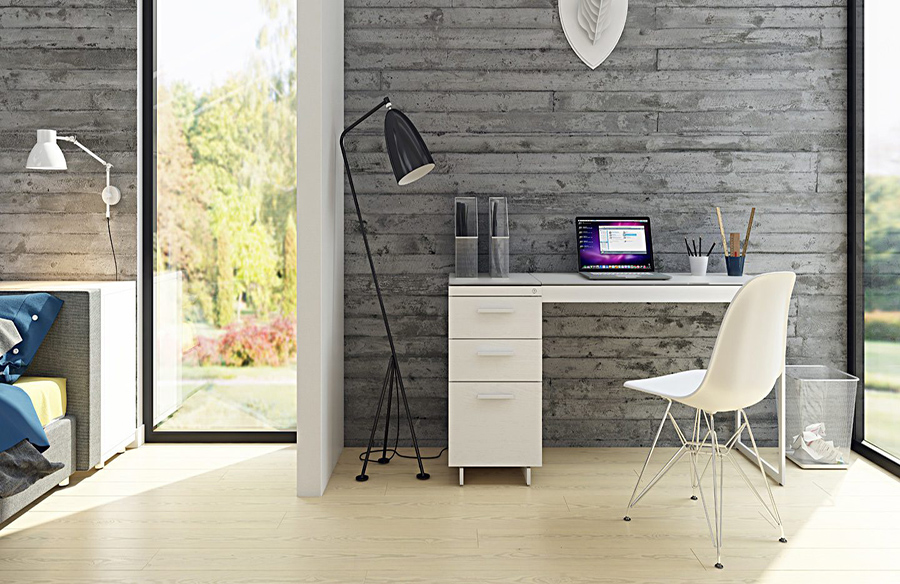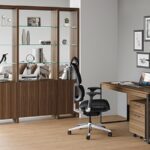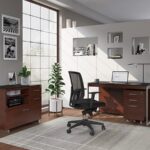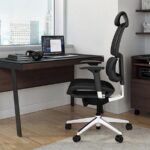In recent years, the home office has become the primary workspace for many individuals, with telecommuting on the rise. According to Census data, the number of people working from home at least half of the time has seen a significant increase. With this shift, creating an efficient and organized home office, especially in smaller living spaces, has become essential for productivity and comfort.
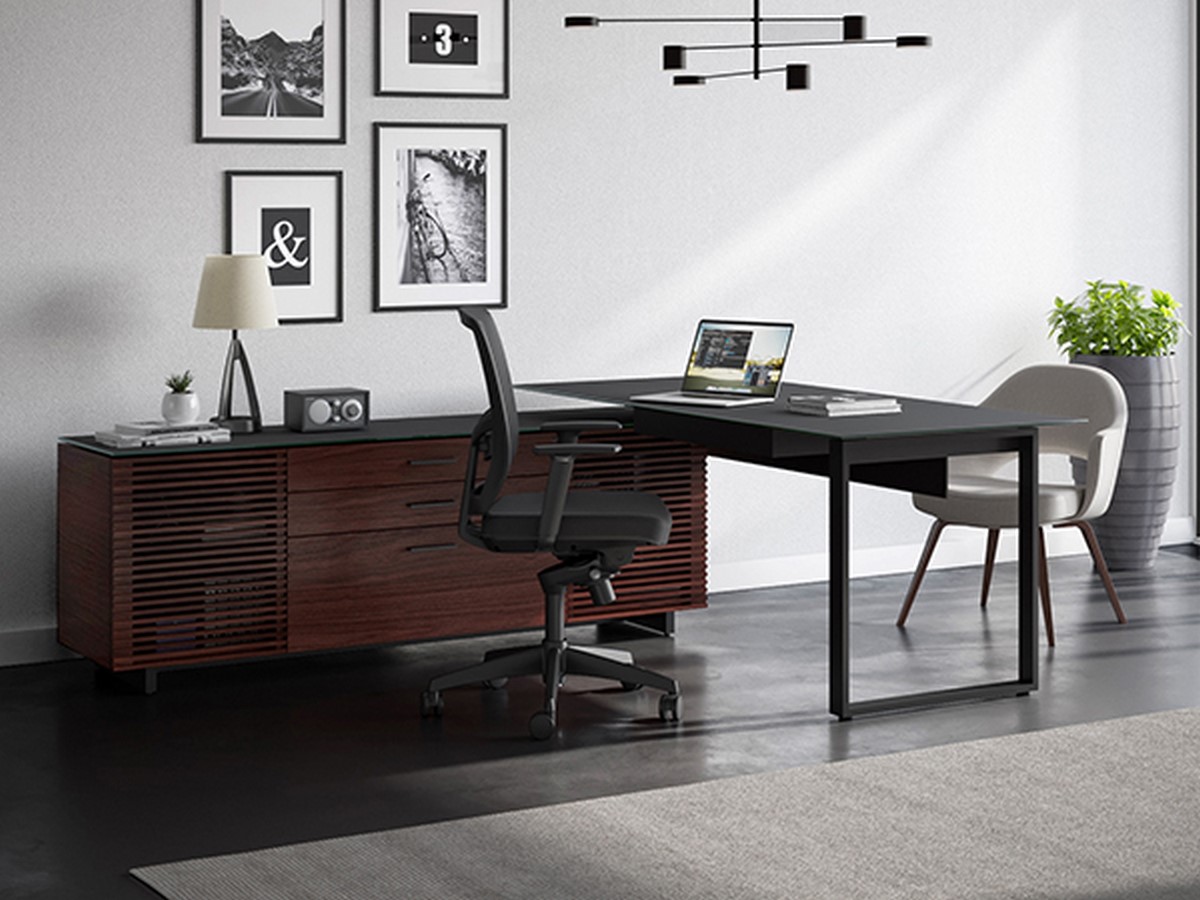
Creating an Organized Workspace
Despite the flexibility and convenience of working from home, maintaining a clutter-free and organized workspace can be challenging, particularly in smaller homes or apartments. However, with the right furniture and layout, it’s possible to maximize productivity even in limited space.
Essential Components: The Desk
A suitable desk is a fundamental element of any home office setup. Given that many individuals now work primarily on laptops, compact desks or multifunctional furniture can help optimize space utilization without sacrificing functionality.
Cord Management
Cord clutter is a common issue in home offices, but it can be effectively managed with the use of wireless devices and furniture designed with built-in cable management systems. Eliminating cords not only enhances the aesthetic appeal of the workspace but also contributes to improved organization and productivity.
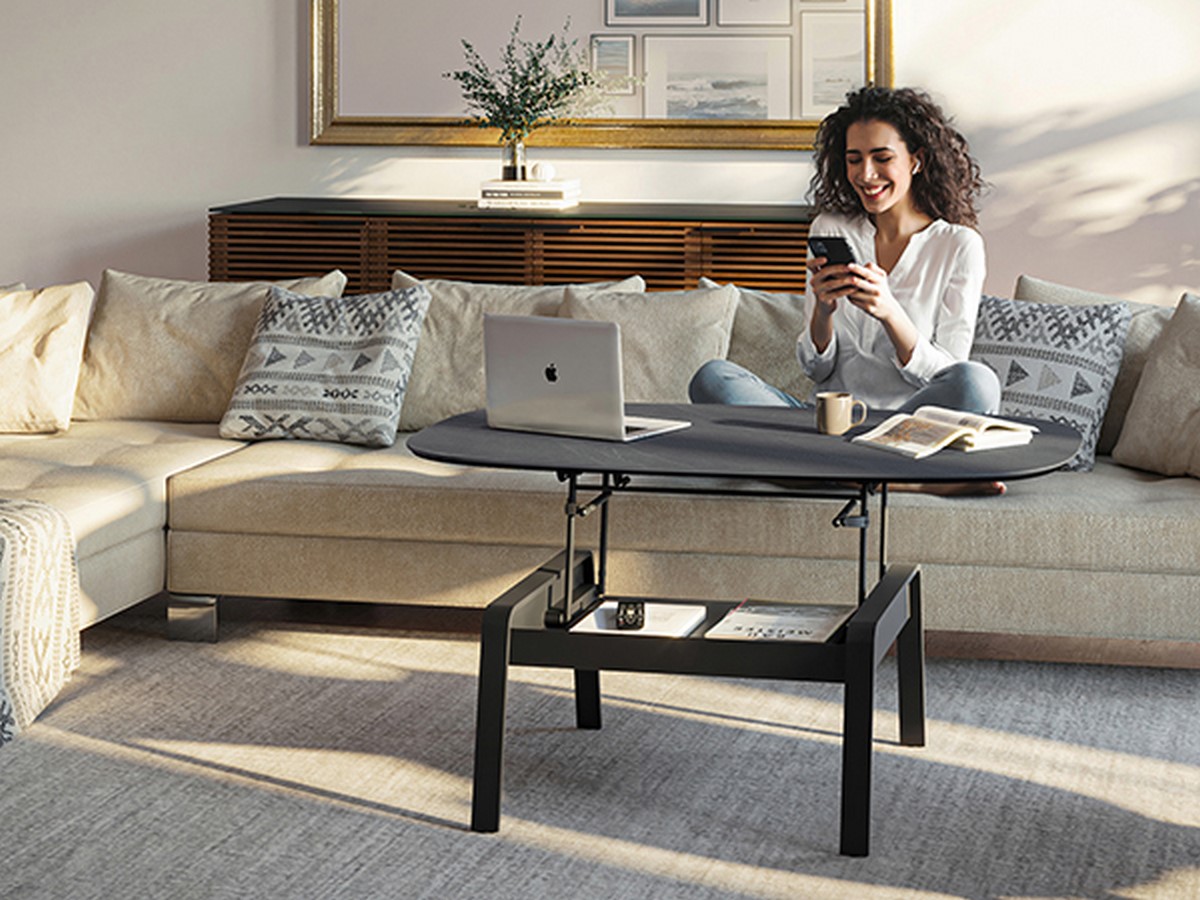
Multi-Functional Furniture
In small spaces where a dedicated desk may not be feasible, versatile furniture pieces such as laptop tables or height-adjustable tables can serve dual purposes. These pieces provide a convenient work surface during work hours and can double as a leisure or dining area when not in use.
Creative Space Utilization
Creativity is key when space is limited. Homeowners can maximize available space by integrating a desk into unconventional areas such as behind a sofa or in an underutilized corner of a room. Open floor plans offer flexibility for creating functional work areas without encroaching on living spaces.
Organizational Tools
Efficient storage solutions are crucial for maintaining an organized workspace. Mobile cabinets with file storage capabilities offer convenient access to essential documents while minimizing clutter. Additionally, desks with built-in file storage help reduce the overall footprint of the workspace.
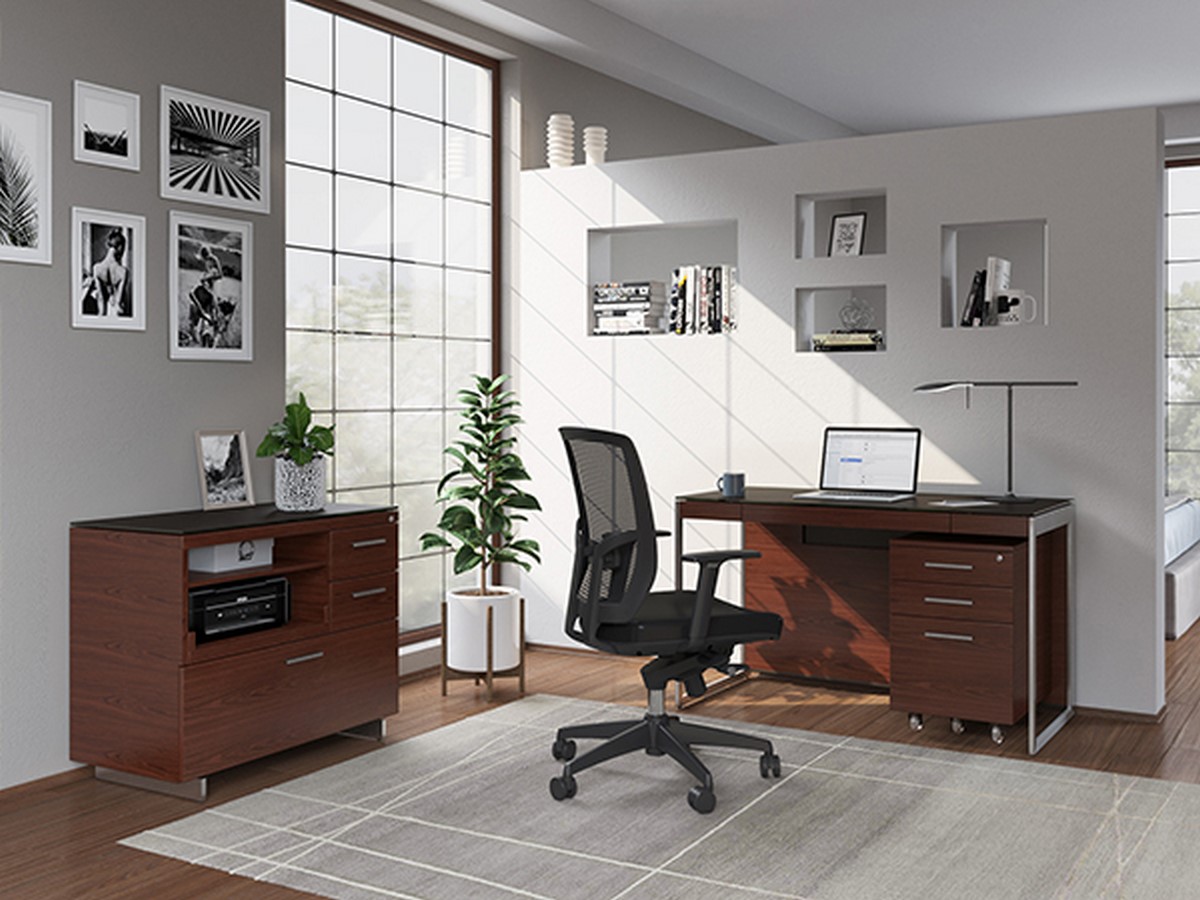
Utilizing Shelving
Vertical space can be effectively utilized with the use of shelves for storing books, decorative items, and work-related materials. Shelving not only provides additional storage but also serves as a display area, keeping the work surface clear and organized.
Conclusion
Regardless of the size of your living space, creating a functional and organized home office is achievable with the right furniture and layout. By incorporating space-saving furniture, effective storage solutions, and creative design strategies, individuals can maximize productivity and comfort in their small home office setups.


